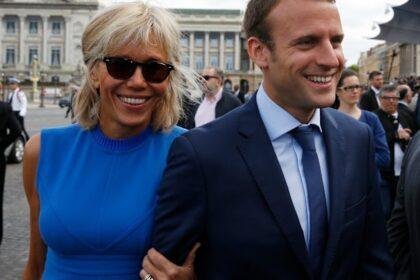Macron Faces Political Isolation Amid Calls for Resignation
French President Emmanuel Macron is currently navigating a turbulent political landscape, marked by increasing isolation and pressure from various factions within the government. The recent resignation of Prime Minister Sébastien Lecornu has intensified discussions about Macron’s future, with some lawmakers openly calling for his resignation or the dissolution of parliament.
A Shifting Political Landscape
Since the 2022 legislative elections, which resulted in a hung parliament divided among three ideologically distinct blocs, Macron has struggled to maintain a stable government. His attempt to call a snap election last year backfired, leaving him with a minority cabinet that has faced significant challenges in passing key legislation. The political climate has shifted dramatically, with far-right National Rally lawmaker Philippe Ballard stating on social media, “Macron now finds himself isolated, without direction or support. He must draw the consequences: either resignation or dissolution.”
Historically, Macron’s presidency has been characterized by ambitious reforms, including tax cuts and a controversial pension overhaul. However, these initiatives have been met with resistance, particularly as France grapples with a growing deficit. The government’s efforts to implement deficit-reduction measures have faltered, leading to the resignation of two prime ministers over the past year due to their inability to stabilize public finances.
The Role of the Prime Minister
Lecornu’s appointment was seen as a strategic move to unite conservatives and centrists in a bid to restore some semblance of order. However, the recent rebellion led by Bruno Retailleau, a prominent conservative figure, has undermined this effort. Retailleau publicly criticized Lecornu’s cabinet just hours after its formation, signaling a deepening rift within the ruling coalition.
Macron’s hope is that Lecornu can bridge the gap and bring conservatives back to the negotiating table. However, the prospect of appointing a left-leaning prime minister poses its own challenges. The Socialists’ demands for a wealth tax and a reversal of pension reforms make them a difficult partner for coalition-building.
Rising Pressure from the Opposition
The political pressure on Macron is mounting, with Marine Le Pen, leader of the far-right National Rally, calling for the dissolution of parliament and new elections. Polls indicate that her party is gaining traction, capitalizing on the perceived collapse of the center. Political analyst Stewart Chau notes that the National Rally is benefiting from protest votes, viewing the potential for dissolution as a unique opportunity to gain power.
Calls for Macron’s resignation, once relegated to the fringes of political discourse, are now gaining mainstream traction. David Lisnard, the mayor of Cannes and a rising conservative figure, stated on social media, “France’s national interest demands that Emmanuel Macron set a date for his resignation, in order to preserve the institutions and unblock a situation that has been unavoidable since the absurd dissolution.”
Historical Parallels
Macron’s current predicament draws parallels to past French leaders who faced similar crises. Notably, Charles de Gaulle’s resignation in 1969 serves as a historical reference point. De Gaulle stepped down after a failed referendum, a move that shocked the nation but ultimately allowed for a political reset. Macron, who has repeatedly asserted his intention to serve out his full term, may find himself contemplating a similar dramatic gesture as he grapples with dwindling support.
The Future of Macron’s Presidency
As Macron navigates this complex political landscape, the question remains: what will be his next move? The pressure from both the left and right is palpable, and the potential for a government reshuffle looms large. While Macron has expressed a desire to see his reforms through, the reality of his political isolation may force him to reconsider his options.
In conclusion, Emmanuel Macron’s presidency is at a critical juncture. With increasing calls for his resignation and the potential for parliamentary dissolution, the coming weeks will be pivotal in determining the future of his administration. As France faces significant economic challenges and political fragmentation, the outcome of this political crisis could reshape the nation’s governance for years to come.










